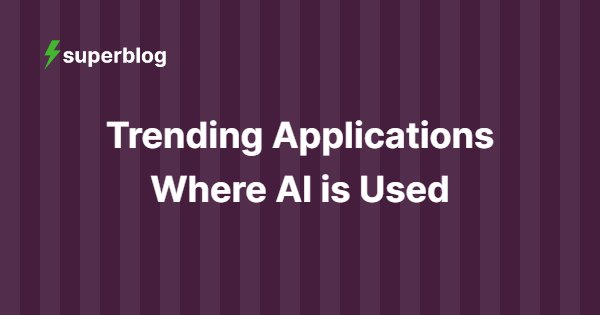AI in Healthcare: Revolutionizing Diagnostics, Treatment, and Drug Discovery
Revolutionizing Diagnostics with AI
Artificial intelligence (AI) is transforming the healthcare landscape, revolutionizing diagnostics, treatment, and drug discovery. In the realm of diagnostics, AI algorithms are being developed to analyze vast amounts of medical data, including patient records, imaging scans, and genetic information. This enables healthcare professionals to identify patterns and make more accurate diagnoses, often at an earlier stage.
For instance, AI-powered systems can analyze medical images, such as X-rays and MRI scans, to detect subtle abnormalities that may be missed by the human eye. This can lead to earlier detection of diseases like cancer, allowing for timely intervention and improved patient outcomes. Additionally, AI algorithms can analyze patient data to predict the risk of developing certain diseases, enabling preventive measures to be taken.
AI is also revolutionizing treatment planning. By analyzing patient data and medical literature, AI algorithms can provide personalized treatment recommendations tailored to each individual’s unique needs. This can help healthcare professionals select the most effective treatments and optimize dosage regimens, leading to improved patient outcomes and reduced side effects.
Furthermore, AI is playing a pivotal role in drug discovery. AI algorithms can analyze vast chemical databases and identify potential drug candidates with desired properties. This can significantly accelerate the drug development process, reducing the time and cost associated with bringing new therapies to market.
In addition to its impact on diagnostics, treatment, and drug discovery, AI is also transforming other aspects of healthcare. For example, AI-powered chatbots are being used to provide patients with 24/7 support and answer their questions. AI algorithms are also being developed to optimize hospital operations, such as scheduling appointments and managing patient flow.
As AI continues to advance, its impact on healthcare is expected to grow even more profound. By leveraging the power of AI, healthcare professionals can improve patient care, reduce costs, and accelerate the development of new therapies. This will ultimately lead to a healthier and more equitable healthcare system for all.
AI-Driven Treatment Advancements
Artificial intelligence (AI) is transforming healthcare, revolutionizing diagnostics, treatment, and drug discovery. In the realm of treatment advancements, AI’s capabilities are particularly profound.
One of the most significant applications of AI in treatment is personalized medicine. By analyzing vast amounts of patient data, AI algorithms can identify patterns and predict individual responses to treatments. This enables clinicians to tailor therapies to each patient’s unique needs, maximizing efficacy and minimizing side effects.
AI also plays a crucial role in precision surgery. Advanced imaging techniques, coupled with AI-powered analysis, provide surgeons with real-time guidance during complex procedures. This enhances precision, reduces complications, and improves patient outcomes.
Furthermore, AI is revolutionizing drug discovery. By simulating molecular interactions and predicting drug efficacy, AI algorithms can accelerate the development of new therapies. This not only saves time and resources but also increases the likelihood of success in clinical trials.
AI’s impact on treatment extends beyond physical interventions. Mental health is another area where AI is making significant strides. AI-powered chatbots and virtual therapists provide accessible and personalized support for individuals struggling with mental health issues.
Moreover, AI is transforming the delivery of healthcare. Remote patient monitoring systems, powered by AI, enable clinicians to track patient health remotely, identify potential complications early on, and intervene promptly. This improves patient outcomes and reduces the need for hospitalizations.
As AI continues to advance, its applications in healthcare will only expand. From personalized treatment plans to precision surgery and accelerated drug discovery, AI is revolutionizing the way we diagnose, treat, and prevent diseases. By harnessing the power of AI, we can create a future where healthcare is more effective, efficient, and accessible for all.
AI’s Role in Drug Discovery and Development
Artificial intelligence (AI) is transforming the healthcare industry, revolutionizing diagnostics, treatment, and drug discovery. In the realm of drug discovery and development, AI is playing a pivotal role in accelerating the process and enhancing its efficiency.
One of the most significant applications of AI in drug discovery is in target identification and validation. AI algorithms can analyze vast amounts of biological data, including genomic and proteomic information, to identify potential drug targets. This process, which traditionally relied on laborious and time-consuming experimental methods, can now be performed with greater speed and accuracy.
AI is also revolutionizing the process of lead optimization. By leveraging machine learning techniques, researchers can screen millions of potential drug candidates and identify those with the most promising properties. This process, known as virtual screening, significantly reduces the time and cost associated with traditional lead optimization methods.
Furthermore, AI is transforming the way clinical trials are conducted. AI-powered algorithms can analyze patient data to identify potential adverse events and predict treatment outcomes. This information can help researchers design more effective and personalized clinical trials, leading to improved patient safety and faster drug development.
In addition to its role in drug discovery and development, AI is also being used to enhance drug delivery systems. AI algorithms can optimize drug formulations and delivery methods to improve drug efficacy and reduce side effects. This has the potential to revolutionize the treatment of chronic diseases, such as cancer and diabetes.
The integration of AI into drug discovery and development is a major advancement that is accelerating the pace of innovation in the healthcare industry. By leveraging the power of AI, researchers can identify new drug targets, optimize lead compounds, and conduct clinical trials more efficiently. This has the potential to lead to the development of new and more effective treatments for a wide range of diseases, ultimately improving patient outcomes and transforming the future of healthcare.

